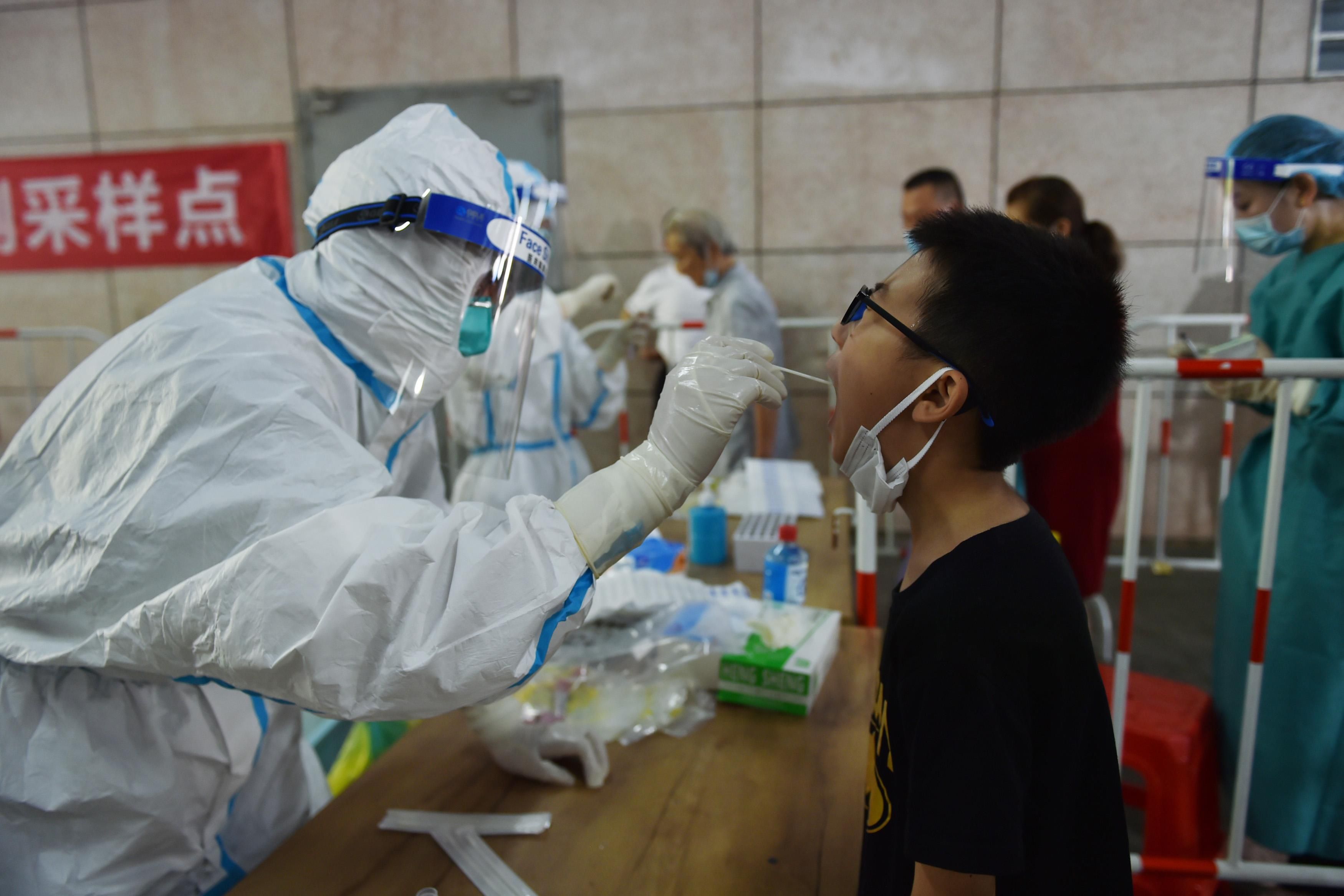What We're Watching: China tackles delta, Bolsonaro fans hit the streets for receipts, Nigeria's crypto conundrum
China tackles delta: China is the latest country to express serious concern over the highly contagious delta variant, after recording 300 cases in 10 days. Authorities there are trying to trace some 70,000 people who may have attended a theatre in Zhangjiajie, a city in China's Hunan province, which is now thought to have been a delta hotspot. Making matters worse, a busy domestic travel season in China saw millions recently on the move to visit friends and family just as delta infections spiked in more than a dozen provinces. Authorities have enforced new travel restrictions in many places, including in central Hunan province, where more than 1.2 million people have been told to stay in their homes for three days while authorities roll out a mass testing scheme. The outbreak has reached Beijing, too, with authorities limiting entrance to the capital to "essential travelers" only. Indeed, the outbreak has raised fresh concerns about Chinese vaccines' protection against delta, because China has not provided efficacy results for the variant.
Bolsonaro hit the streets for receipts: Ahead of what looks like an increasingly tough fight for reelection in 2022, Brazil's provocative right-wing president Jair Bolsonaro has been calling into question the integrity of the vote itself. Recently, he has alleged, without evidence, that there was "fraud" in the first round of the 2018 election, which he won in a runoff. Now, as Bolsonaro trails his most likely 2022 competitor, the popular leftist former president Lula, by double digits in early polling, he has suggested that Brazil's electronic voting systems are vulnerable to new mischief. On Sunday, a few thousand of his supporters took to the streets to support his demand that every vote cast electronically in 2022 come with a paper receipt for easy recounts. To be clear, there is zero evidence that vote tampering of this kind is a real problem in Brazil. Observers worry that Bolsonaro, who has badly mishandled the pandemic and faces potential corruption allegations that could open the way to impeachment, is laying a fictitious groundwork to contest an election that he might lose. Sound familiar?
Nigeria's crypto conundrum: The Nigerian government has tried to crack down on cryptocurrency trading over the past year, but recent figures show that the strategy is backfiring: Nigerians traded 50 percent more in the first five months of 2021 than during the same period last year, according to a Helsinki-based crypto platform. Many factors, including a stagnant economy, corruption, and a pandemic-related drop in remittances and the value of the local currency, have caused the surge in crypto trading in Nigeria, where 62 percent of the population is under the age of 25. (Nigeria is now second only to the US for Bitcoin trading.) Trying to reduce incentives for Nigerians to trade in unregulated currencies, in February the government banned cryptocurrency transactions through licensed banks, a measure that was largely ignored. The government, for its part, says the move is intended to protect users from a volatile and unregulated industry; critics say it's about excessive government control. Indeed, recent events show that any central bank must tread carefully when attempting to regulate crypto, which is fast becoming a major conundrum for monetary authorities around the world. Nigeria's central bank recently announced that it would pilot the launch of its own digital currency in October as an alternative, but none of these measures seem to have changed Nigerians' behaviors for now.